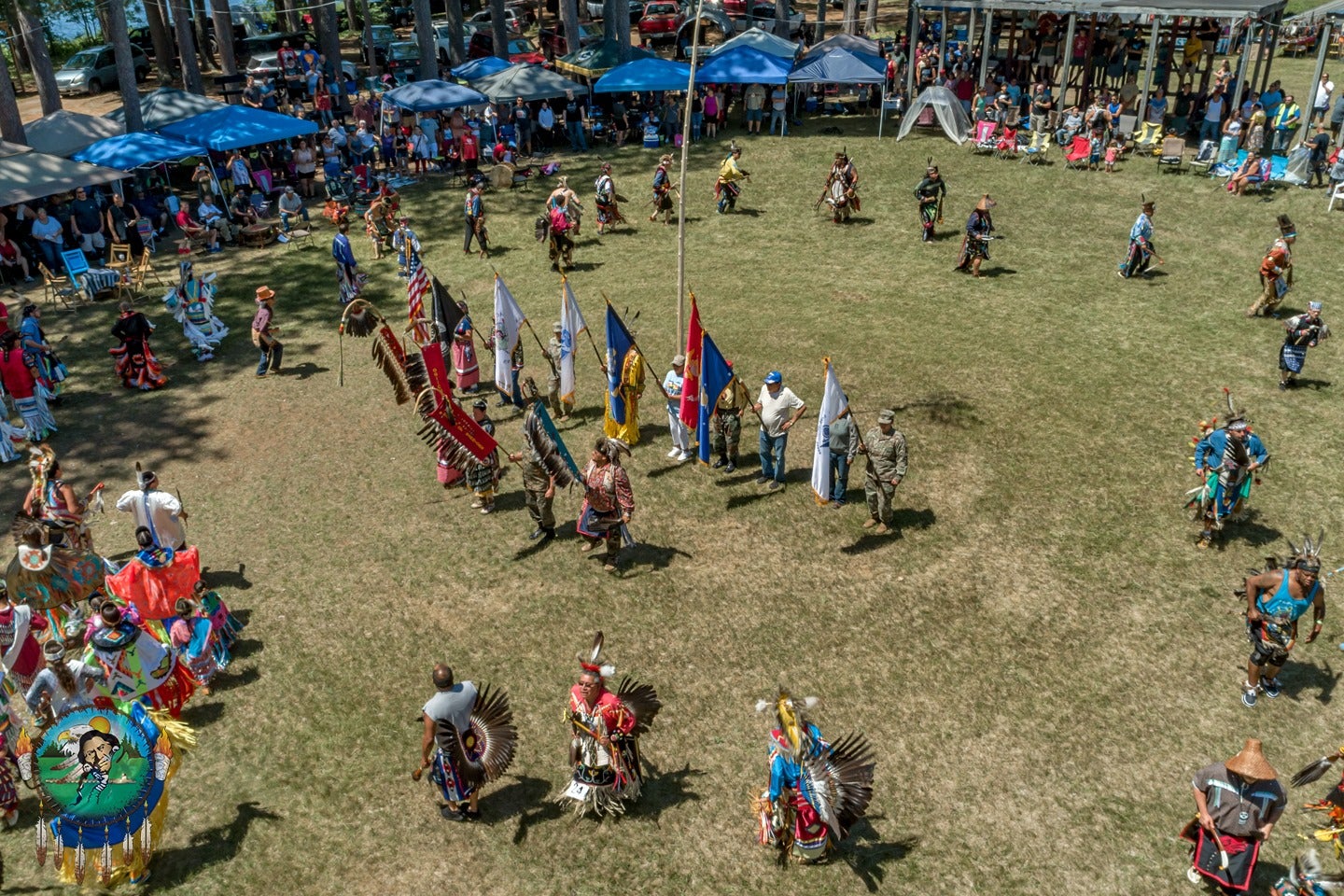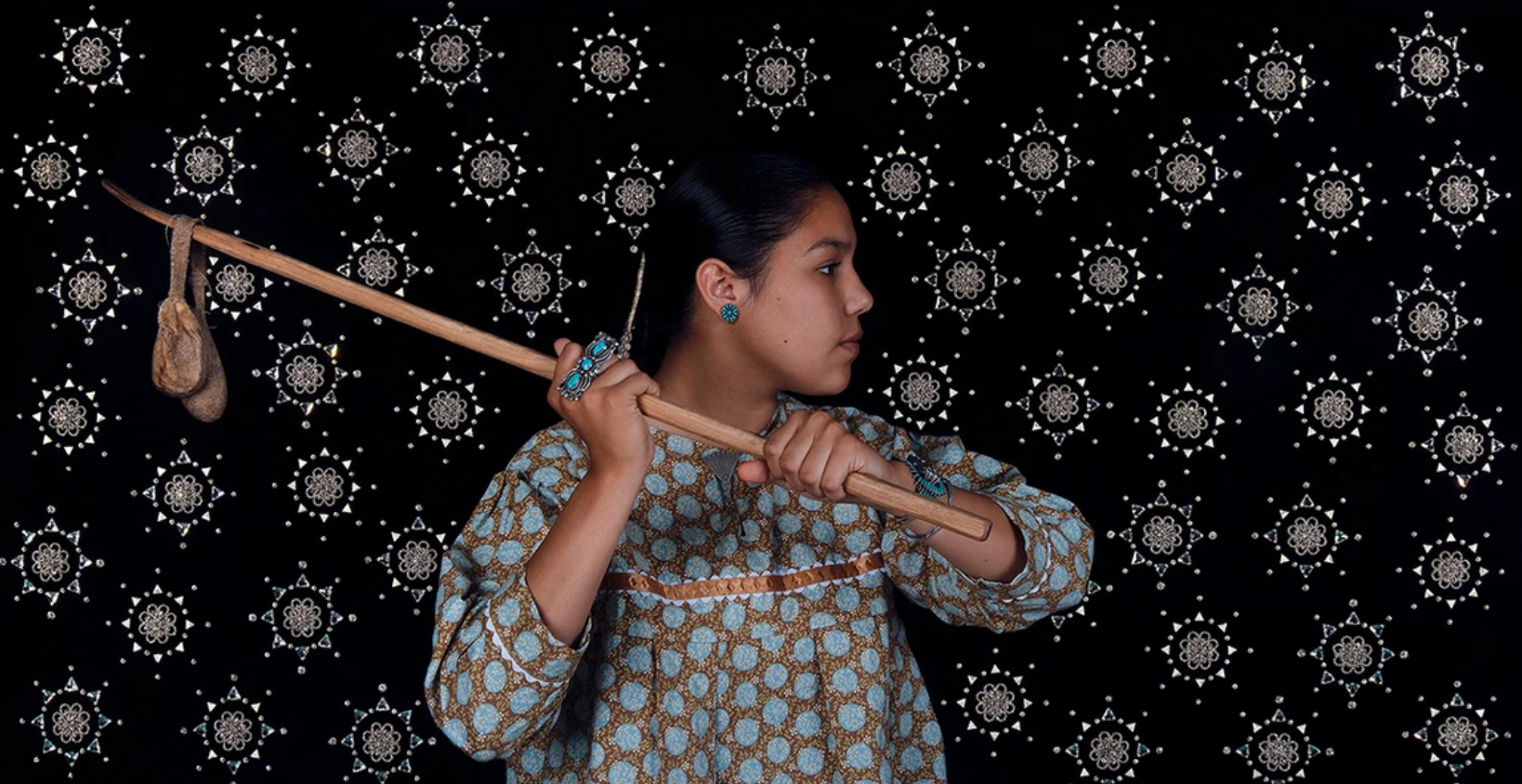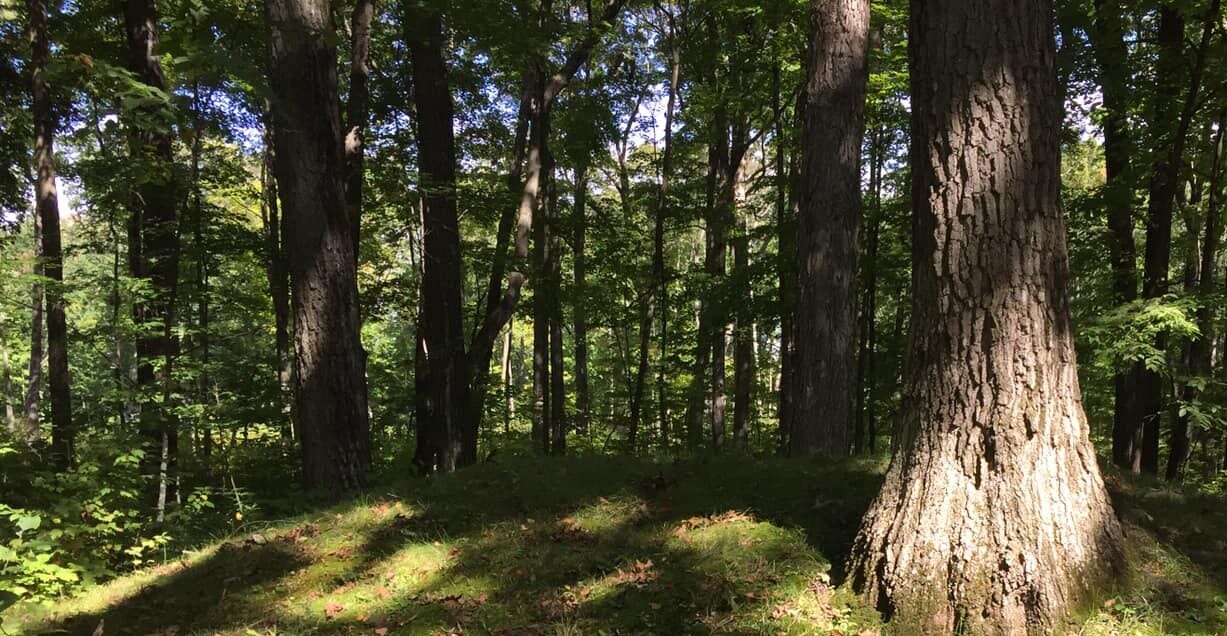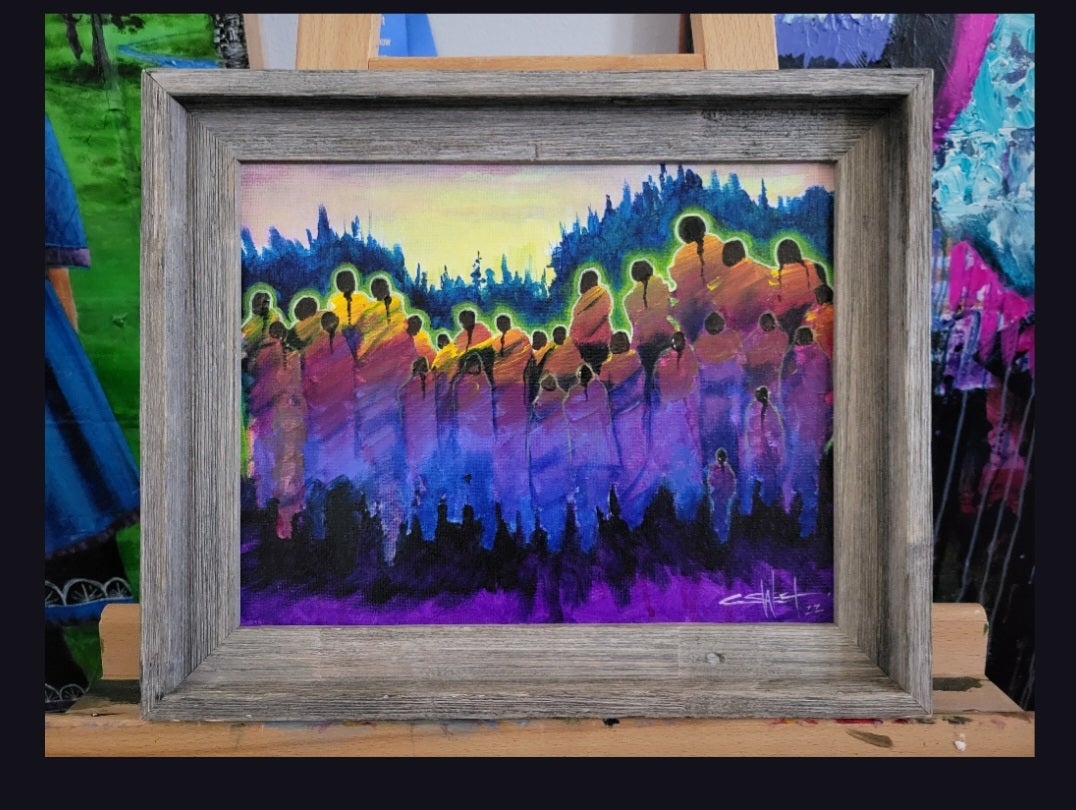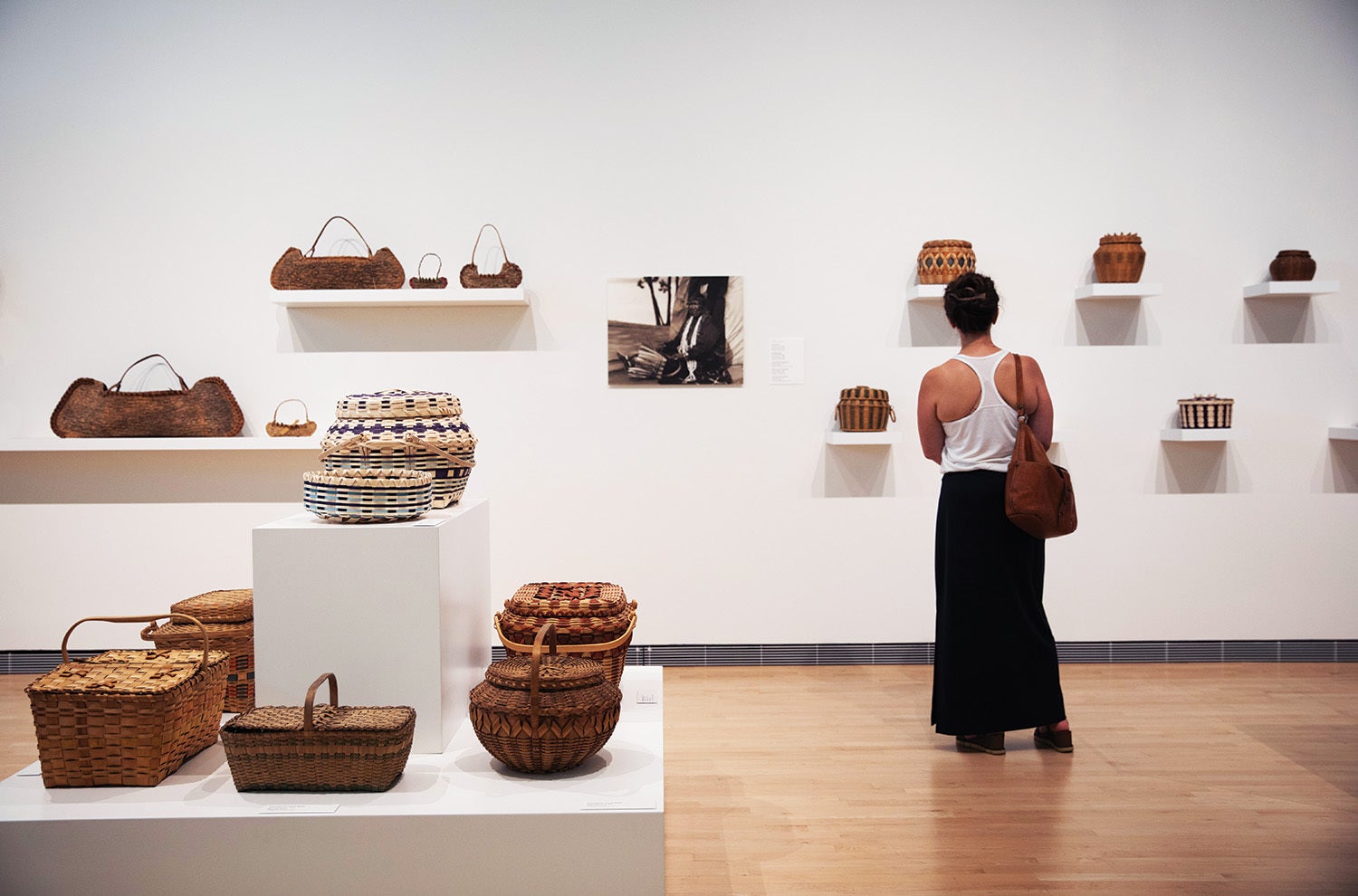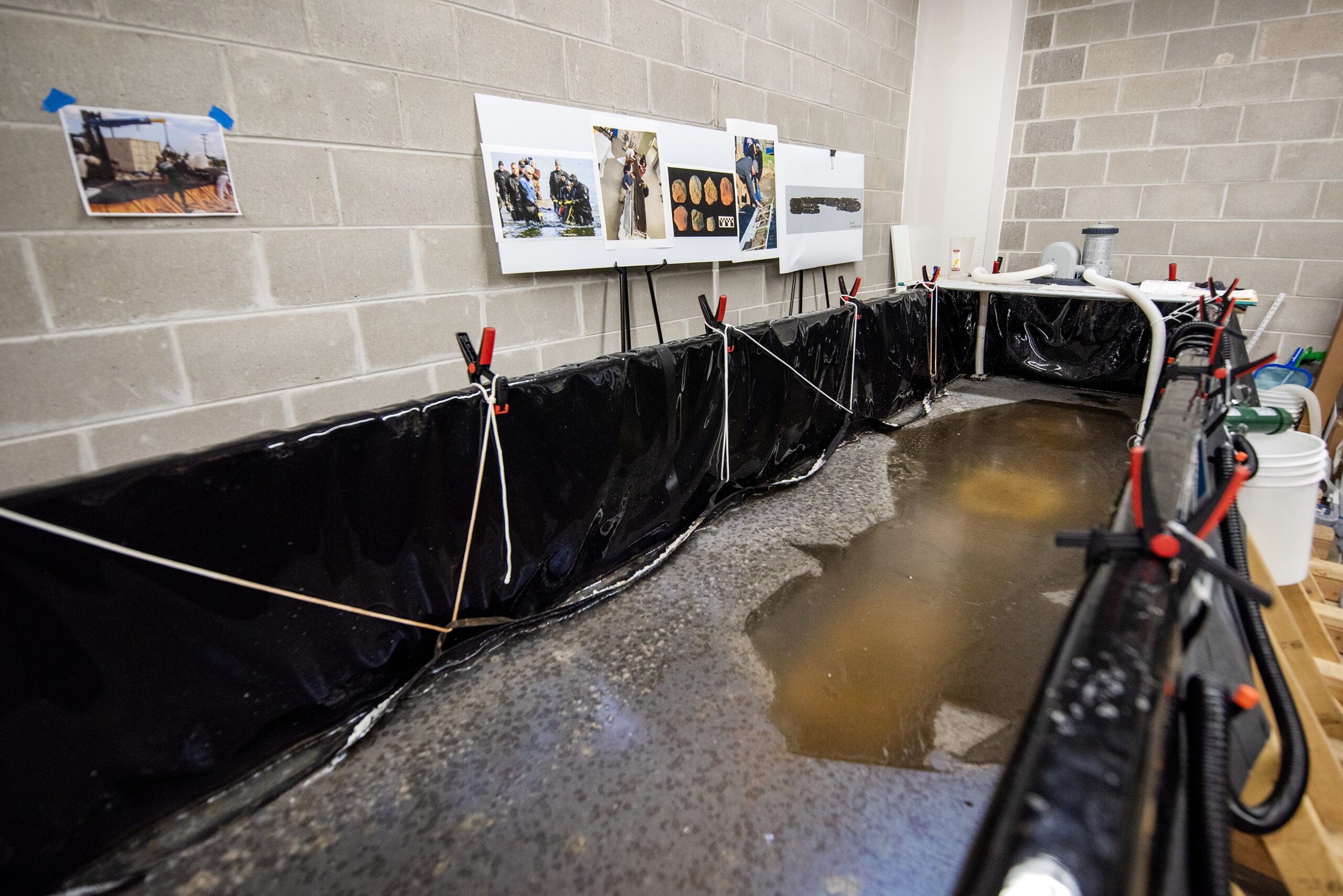Wisconsin recognized Indigenous Peoples Day Monday with celebrations and presentations across the state.
In Milwaukee, rhythmic drumming, colorful regalia and lively dancing filled the Milwaukee Public Museum to celebrate the holiday, which falls on the same day Columbus Day is observed nationally.
The Little Priest Singers, a drum group from the Ho-Chunk Nation, performed five dances. Each had a different style, varying in rhythm, purpose and style of dress.
Stay informed on the latest news
Sign up for WPR’s email newsletter.
Kelly Logan was one of the drummers who accompanied the dancers. He is a full-blooded Ho-Chunk, something he said is rare. He grew up in Milwaukee and used to celebrate Columbus Day in school.
“That was negative for natives, but we kind of turned it around in the past few years, and now it’s a day I look forward to. I am honored to come out, perform or sing or dance,” Logan said. “I feel proud today.”
He said it’s an honor to teach Ho-Chunk culture to others because he felt it was being lost in the American mainstream.
“Mainly all the people came here with a culture, and it’s been gone. Now, it’s just kind of one culture, but we still try to keep ours alive — language, song and dance,” Logan said.
Dutch Leydel brought her granddaughter, June, to see the Indigenous dancers perform. Leydel’s family is Indigenous to America, and she wants to expose her granddaughter to her ancestry.
“If you listen to the drum you can hear the story, and you can hear the voices of our ancestors,” Leydel said.
When she listened, she said she heard, “my father’s voice.”
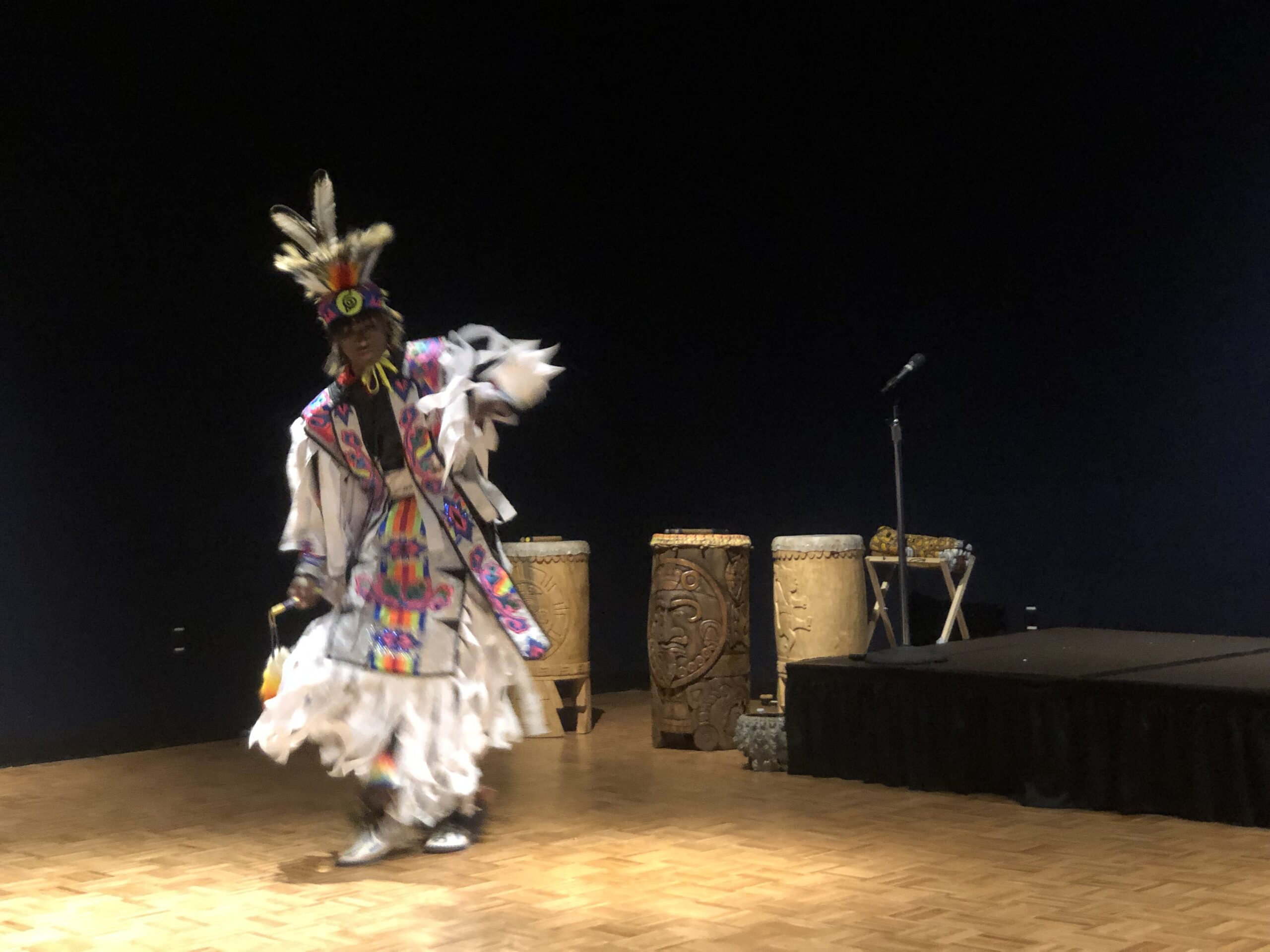
In 2016, Brian Bowman and his fourth-grade class at Indian Community School started advocating for Milwaukee County to recognize the second Monday of every October as Indigenous Peoples Day, not Columbus Day. After a Milwaukee County Resolution to redesignate the day, the fourth graders rallied at the Wisconsin Capitol.
The state first recognized Indigenous Peoples Day in 2019, after Governor Tony Evers signed an executive order.
At the time of his class field trip to the capital, Bowman said he didn’t understand the significance.
“I thought it was kind of like homework, and it was silly,” Bowman said.
Bowman, now a teenager, is a member of the Stockbridge Munsee tribe. He performed with the Ho-Chunk Nation at the museum. He said the holiday and its new name now mean more to him.
“It makes me happy and I know it makes everyone in the whole Native American community in Wisconsin happy,” Bowman said.
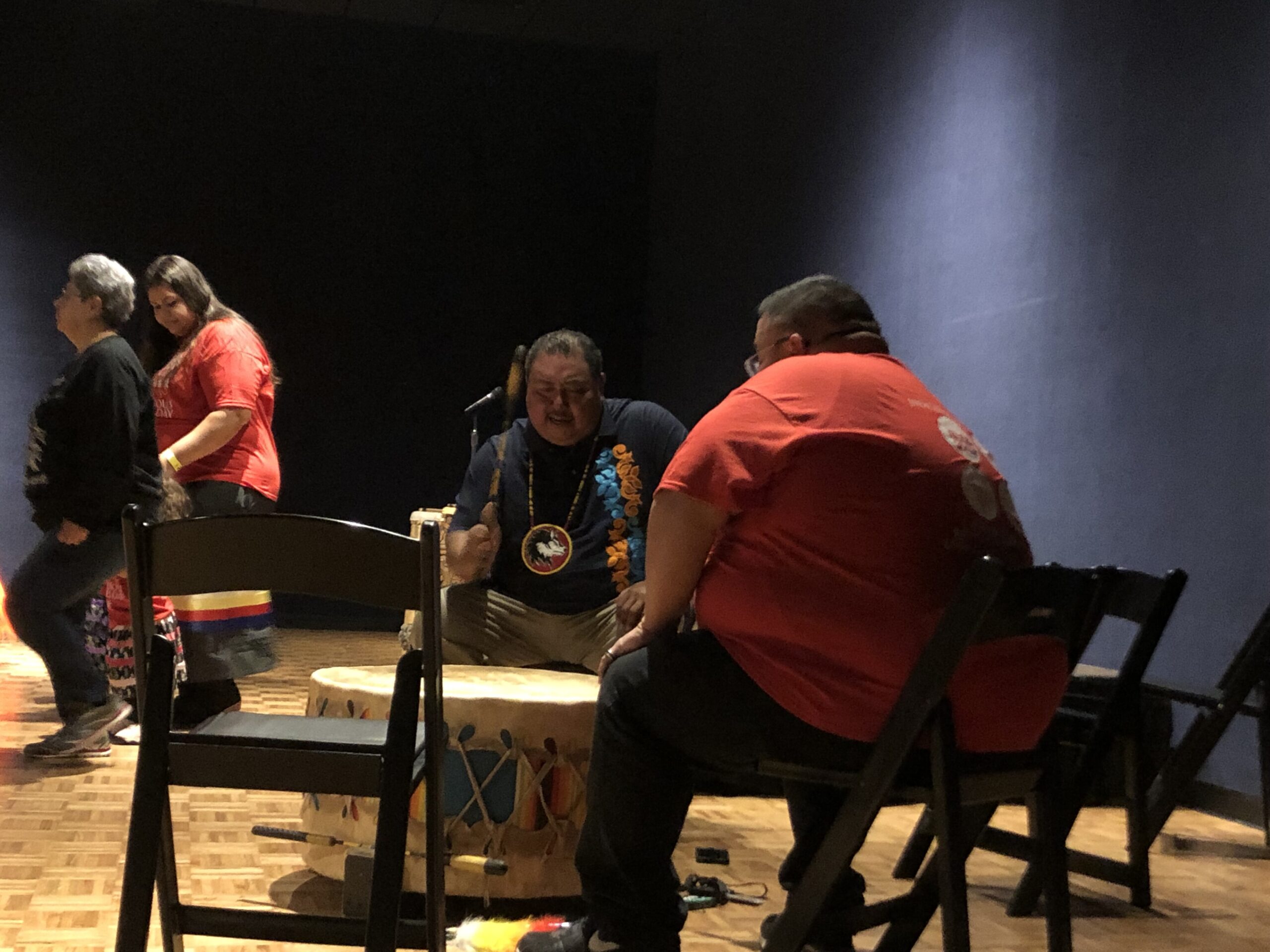
Logan said when the name changed, so did the meaning of the day.
“It really helped out the native community to come out. And now, every year we have this day and everybody is so proud,” Logan said.
Milwaukee Public Museum Indigenous exhibit, Indian Country, shows 37 life-sized figures of the people native to Wisconsin. There is also information about their lifestyle and relationships with non-natives.
Emiliano Rodriguez, outreach educator at the Milwaukee Public Museum, said museums have an important role in society.
“Right now they’re kind of at the forefront of trying to interpret their collections, to interpret it better for the public. So we’re able to preserve these cultures, interpret them well and display them for people,” Rodriquez said.
Bowman said he is proud to teach non-native people about his heritage. The final dance his group performed was the Friendship Dance, and audience members were encouraged to join in.
“What I get to do is go out and tell people that we’re still here and our culture is still very well thriving, and we’re still able to share our culture with non-native people and just native people in general,” Bowman said.
Wisconsin Public Radio, © Copyright 2025, Board of Regents of the University of Wisconsin System and Wisconsin Educational Communications Board.
